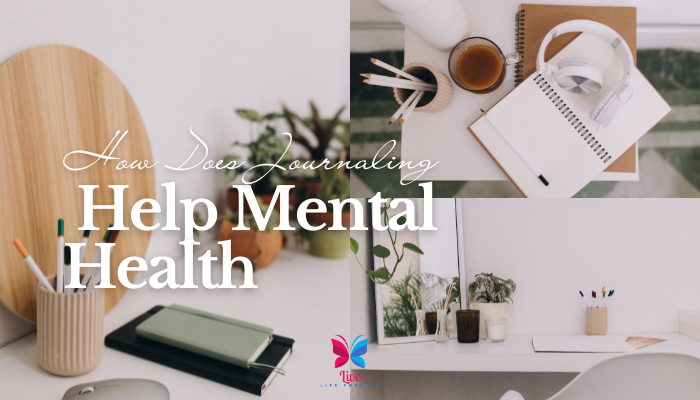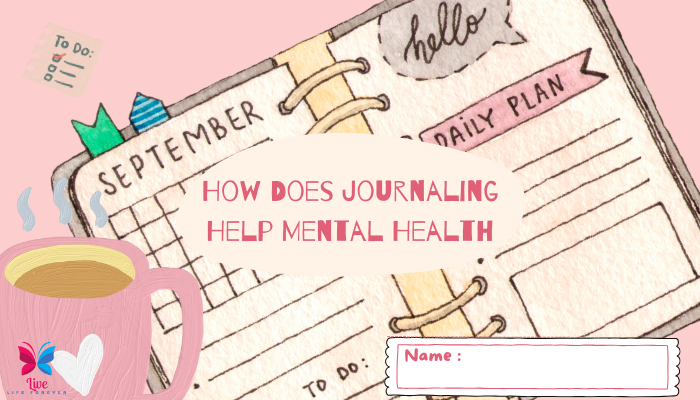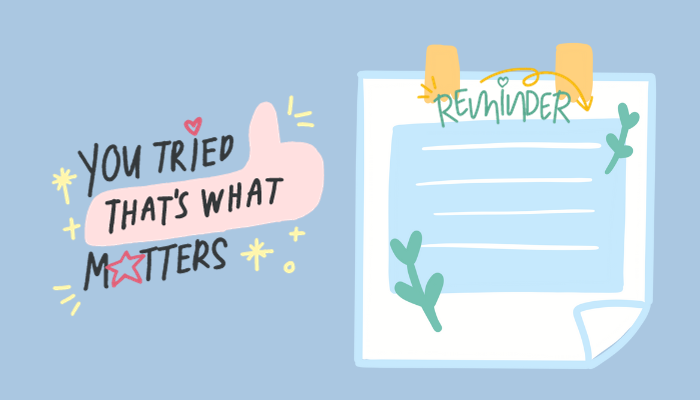The Therapeutic Powers of Journaling: How Does Journaling Help Mental Health

The Therapeutic Powers of Journaling: How Does Journaling Help Mental Health

How Does Journaling Help Mental Health
Keeping a journal, the simple act of writing out one’s thoughts and feelings on a regular basis, is a habit that more and more psychologists and mental health professionals are recommending for better mental health. The intentional practice of journaling has been shown to provide surprising benefits – from stress relief to improved memory and beyond. Read on to learn all about the science-backed, emotionally healing powers of journaling for mental health.
The Benefits of Journaling for Mental Health
Supporting overall mental health is essential for wellbeing. Seeking professional treatment is always advised for specific conditions like anxiety, depression, PTSD, and more. Alongside other healthy coping strategies like exercise, nutrition, mindfulness practices, and social connection, keeping a journal can provide additional support.
Benefits shown to correlate with regular journaling practice include:
- Stress relief
- Improved mood
- Decreased anxiety and depression
- Enhanced immune function
- Reduced blood pressure
- Increased working memory
- Boosted emotional intelligence
- Greater self-confidence
- Healthier relationships
- Promotes post-traumatic growth
- Supports therapy and counseling
Let’s explore the science and research behind each of these benefits further.
Journaling for Stress Relief
Life today is more stressful than ever before. Chronic stress takes a toll mentally and physically, impacting nearly every aspect of health, even at the cellular level. Finding effective ways to manage daily stressors is vital for wellbeing. More than merely venting emotions, the reflective process journaling provides can activate relaxation responses that actively calm the body and mind.
Cortisol is one of the primary hormones released during times of stress. Studies show that participating in journaling can lower cortisol levels, along with other stress biomarkers including blood pressure and heart rate. A particularly impactful study found that journaling before a stressful task helped participants have a significantly larger post-stressor decrease in cortisol levels, effectively accelerating recovery.
Consider keeping a daily stress journal, logging stressors and rating their intensity. This can provide valuable insight into just how much strain accumulates over time. It also allows tracking of how relief methods like journaling reduce perceived stress.
Journaling for Improved Memory
Mental health and cognitive function have an interconnected, reciprocal relationship. So supporting brain health strengthens mental health, and vice versa. Along with lowering stress hormones, writing in a journal is shown to boost working memory – the type of memory applied to short-term recall and learning.
Putting thoughts and reflections into words for later review cements them more concretely. As well, searching for vocabulary and connecting concepts in writing builds neural pathways that improve memory and learning capabilities. In students, especially those struggling academically, journaling demonstrably helps retain information. The practice keeps a record of details that can be referred back to when needed.
Journaling to Boost Mood and Self-Confidence
What we believe about ourselves, our self-efficacy, determines our reality in profound ways by shaping motivations and behaviors. Low self-confidence diminishes resilience against setbacks and mental health challenges. Building a more positive self-concept pays dividends across life domains, making confidence-raising practices like journaling tremendously valuable.
The pages of a journal provide a safe space to honestly examine thoughts, emotions, and experiences. Seeing life events in writing can shift perspectives, bringing clarity. Recording accomplishments, epiphanies, interactions to feel grateful for, random acts of kindness, and positive affirmations are all ways journaling lifts mood and self-confidence over time. This shapes neural pathways to reroute thinking away from negativity bias’ gravitational pull.
A study examining employed adults found that spending just 15 minutes a day journaling about work experiences decreased symptoms of distress while improving self-efficacy and work satisfaction. For those in highly stressful jobs, taking some time to write at the beginning, middle or end of the workday can deliver immense benefits.
Journaling for Emotional Intelligence
Emotional intelligence (EQ) is a pivotal mental health skill that enables properly identifying and addressing inner experiences, rather than suppressing them. EQ directly relates to self-awareness, self-regulation, motivation, empathy, and interpersonal effectiveness. Greater ability to handle emotions in healthy ways minimizes psychological distress while nurturing resilience.
Committed journaling undeniably strengthens emotional intelligence over time by providing space for reflection. As life unfolds, revisiting reactions through a journaling lens aids learning from experiences. We can examine how certain situations make us think, feel and behave while questioning what purpose emotional responses serve. The intrinsic value of enhanced EQ through journaling impacts every life arena.
Research in classrooms consistently finds that journaling improves EQ in students at all levels. And workplace studies demonstrate how leaders profit from keeping journals through improved social functioning and performance. Overall, journaling appears to benefit EQ across all demographics for pivotally positive life changes.
The Emotionally Healing Powers of Journaling
Beyond concrete physiological and psychological changes, regularly journaling also provides space for pivotal emotional healing. Working through inner pain, past traumas, ongoing struggles or stagnation via journaling can ultimately rewrite life’s narrative. Over time, perspectives broaden, lessons become clear, acceptance grows, and post-traumatic growth can unfold across all areas of life.
For those in therapy or counseling, journaling between sessions maximizes progress by enhancing insight. It also helps vent emotions to better focus on actual treatment during appointments. For those not in formal treatment, journaling serves as a DIY healing tool to supplement other well-being practices.
Unresolved issues often subconsciously replay in the background of daily life until adequately processed at conscious levels. Committing experiences to paper transfers them out of the frantic activity of the mind so they can integrate in balance with one’s whole being. Emptying inner turmoil onto pages disempowers unhealthy thought patterns through honest evaluation in writing.
After particularly painful or pivotal moments, journaling helps acknowledge, respect and ultimately reconcile the full essence of related emotions. Trauma therapies like EMDR use bilateral stimulation to activate and integrate subconscious aspects of adverse experiences. In a way, writing about distressing events similarly helps integrate all facets that fragmented at the time due to overwhelm. Relieving emotional burden through journal processing empowers moving forward unencumbered by the weight of unresolved demons from the past.
How To Start a Journaling Habit
Convinced of journaling’s profound mental health benefits? Committing to a daily writing practice maximizes positive change. Fortunately beginning a journaling routine is simple. All you need is a pen and paper, or use any writing platform if you prefer typing. Waiting for perfect timing, extra funds for a fancy journal, or inspiration to strike won’t serve progress. Begin now instead with whatever is on hand.
When first establishing consistency, even aim for just 5-15 minutes per day rather than longer writing sessions less frequently. Consider building journaling into an existing routine like writing morning pages over coffee or tea, during a lunch break, winding down before bed, or as part of exercise warm ups or cool downs.
What To Write In a Journal
New and aspiring journalers often get stuck determining what exactly to write about. Remember, this is an open space for your eyes only. There are infinite possibilities of beneficial topics. Over time, the writing process itself delivers increased clarity around what to journal. To get started, consider writing about:
- Daily experiences, thoughts and feelings. Summarize pivotal moments, meaningful conversations, difficult interactions etc.
- Reactions to events, news or information learned each day. This helps assimilate through processing.
- Progress, setbacks, epiphanies and insights related to goals, projects or personal growth.
- Appreciation lists – what you feel grateful for about yourself, life, relationships etc right now.
- Affirmations – positive statements about yourself, abilities or qualities to strengthen self-confidence.
- Stream of consciousness writing. Just begin writing whatever comes up, even if random, messy or painful. Often profound self-realizations unfold.
Remember journaling’s benefits compound over time. Be patient continuing the practice before expecting pronounced changes. Vary writing topics to encompass all life domains. Tolerate imperfect consistency rather than abandoning efforts. Soon journaling feels essential for mental health and wellbeing.

Additional Journaling Tips
To maximize journaling benefits, here are some additional helpful tips:
- Date journal entries. Looking back over time provides perspective on growth.
- Stick to first person writing over speaking to an imaginary audience to enhance self focus.
- When writing feels tedious, explore creative formats like poems, letters to yourself or a friend, song lyrics, bulleted lists etc.
- Occasionally review past journal entries to reflect on healing progress and patterns over longer time periods. Notice how perspectives change.
- Add doodles, pictures and quotes for visual interest and to supplement writing.
- Journal digitally if preferred, using encrypted files or password protection to ensure entries remain private.
- When journaling to process upsetting events, end by writing about something positive to counter emotional overwhelm.
Sample Journal Prompts
Unsure where to start or what to write about? Try any of these simple journaling prompts if inspiration runs dry:
- What I accomplished today…
- What I felt grateful for recently…
- Something beautiful I noticed today…
- Something funny that made me laugh…
- What I love about my job right now…
- One thing I could do to take better care of myself is…
- My biggest question or concern right now is…
- If my best friend came to me with this issue, I would advise…
- Right now I feel… because…
- My favorite new song lyric is… because it relates to my life by…
- Something I did recently that brings joy is… I want to do more things like this.
- I let someone down today by… Next time I will try instead to…
- My favorite quality I showed recently is…
- My top priorities right now are…
- I manifested something positive by…
- I felt inspired by…
- Something outside my comfort zone I enjoyed is…
- Something I want to learn more about is…because…
- My goal for this year is… I can achieve this by…
Over time journaling prompts become less necessary as writing flows freely. Still, returning to quick prompt exercises can prove useful for emotional first aid during distressing times.
Journaling for Mental Health: Final Thoughts
A journaling practice clearly provides concrete physiological and psychological therapeutic effects. It deserves a role in every mental health treatment plan or wellness routine. Fortunately, writing reaps rewards whether consistently maintained daily or more sporadically. Both disciplined routine journaling and writing only when inspiration arises can support evolving insight over time.
The pages of a personal journal offer a non-judgemental space to calmly work through emotions, gather thoughts, set goals, track growth, and integrate experiences with self-empathy. Translating life’s essence into words is a ritual that begets revelation. Committing to consistent journaling provides a ritual space for pivotal healing, self-discovery and intentional evolution. The simple act of processing inner and outer life experiences through writing transforms perspectives that change what possibilities seem attainable moving forward.
Ultimately, journaling allows consciously curating your unique life narrative. Chronicling pivotal moments and mental shifts shapes how the trajectory of your story unfolds. What do you want your life’s story to say? Let the journaling journey unfold…




